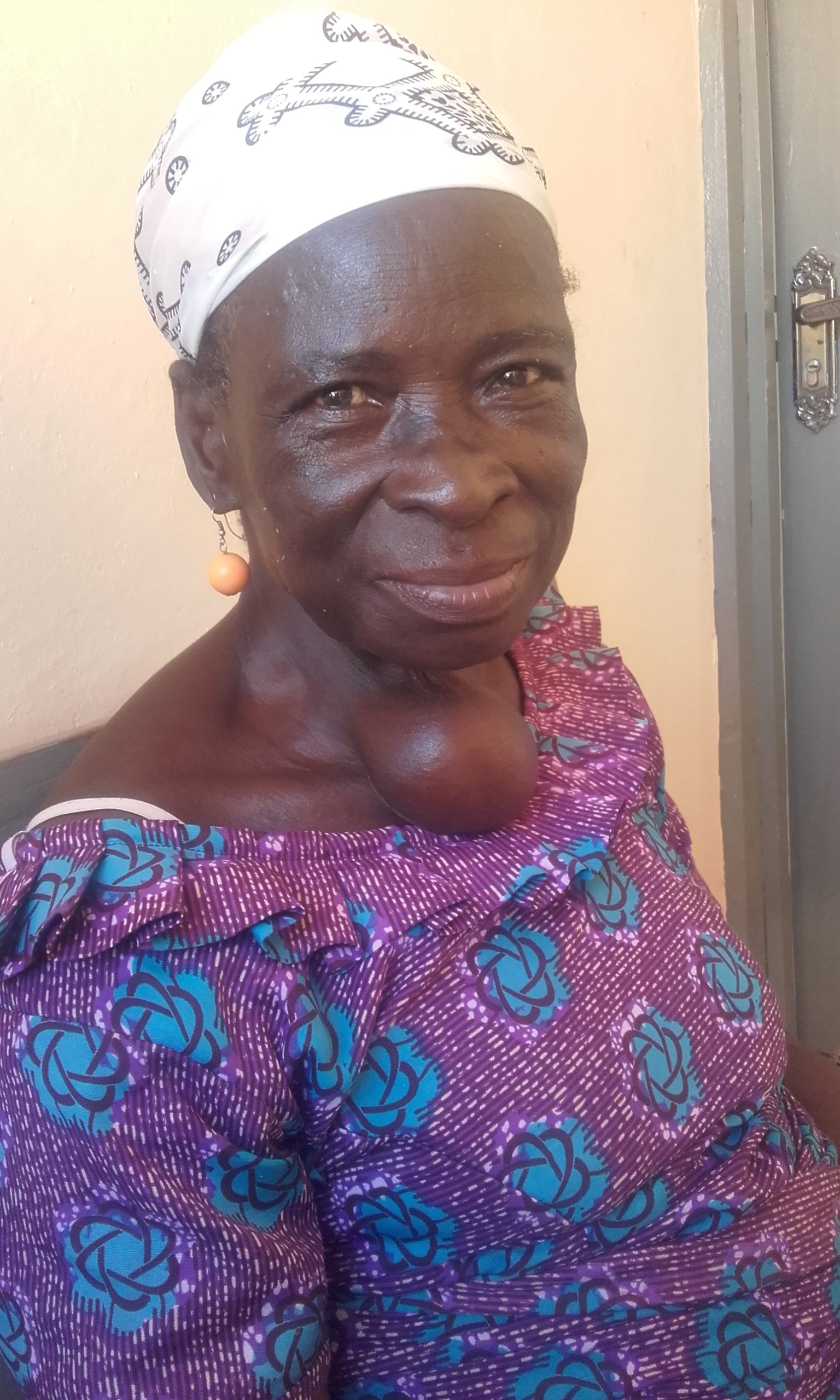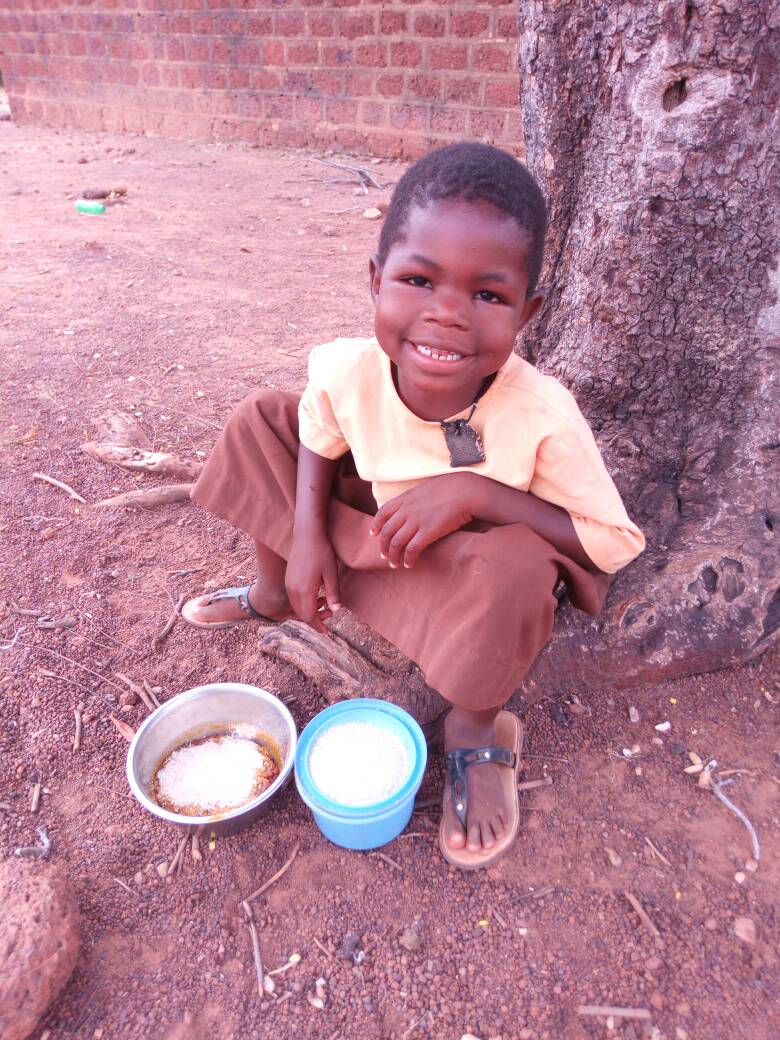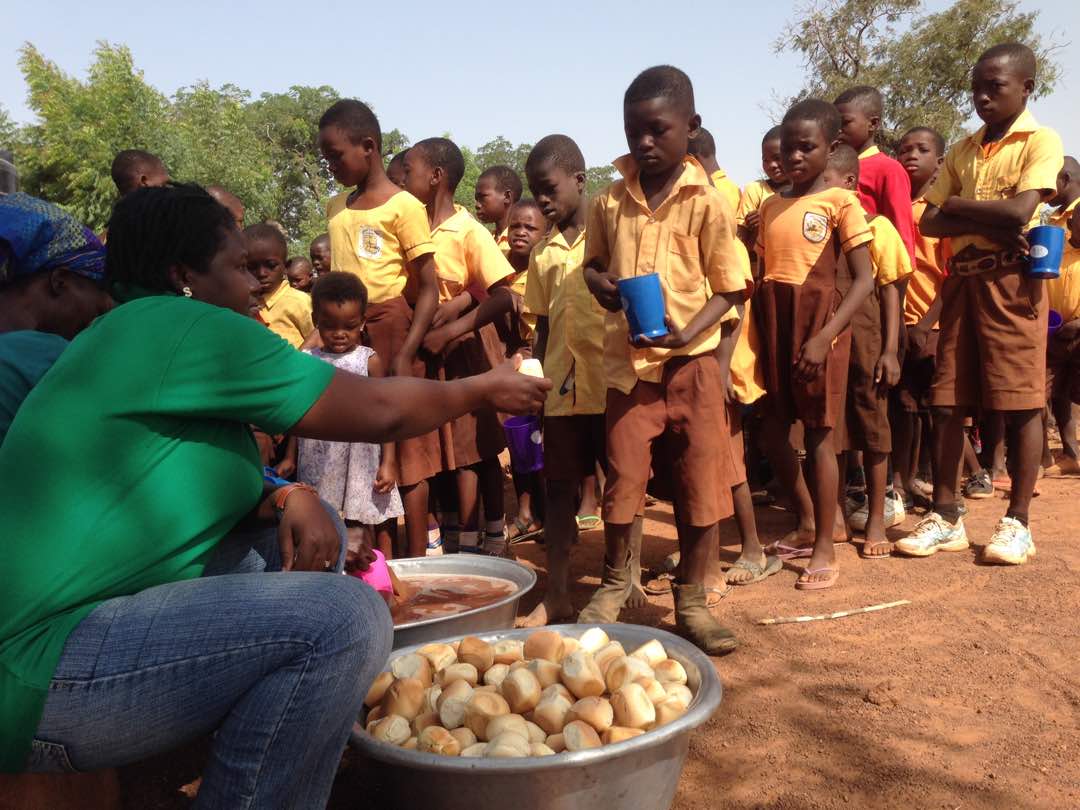Worldwide, 45% of deaths in children under the age of 5 are related to malnutrition; 2 billion people suffer from micronutrient deficiencies; and while rates of obesity continue to rise in some countries there are 150 million children suffering from under nutrition (WFP 2018).
Lawra District is in the Upper West Region of Ghana and is one of the most impoverished and neglected districts in Ghana. It has a long dry season from January to April, which causes chronic food shortages and high food insecurity – during which time some families will eat as little as four times a week. The difficult and dry climatic situation means that 83% of the people in Lawra rely on subsistence farming to feed themselves and their family. This leaves nothing left over to sell and make a profit, which causes extreme hardship during the dry season when your food stores have been used up.
When ATE founder and Chief Executive, Sarah Albeboure, first visited Lawra District in 2012, she was struck by the number of children not accessing the government-funded education available to them. Instead, she would see children foraging in the bush for food, hawking products in the market, working on farms, and even scavenging through her rubbish for food to eat. It shocked her and it was one of the first things she set about trying to change.
“Poverty is complicated, but feeding hungry children is not” Sarah Albeboure
Nutrition is often considered to be a stand alone issue, but we have all experienced how difficult it is to concentrate in class, at work, or even in conversation with your friends when you’ve skipped a meal. ATE introduced school feeding to Karbo Primary school in 2012 and now feeds almost 1000 school children across four schools everyday. This daily nutritious meal encourages children into school but also gives them the strength to focus in class, to achieve their potential and enables them to create a brighter future.

While children are among the most vulnerable in society, it is frequently the adults in the family who will eat less to enable their children to eat more. At our monthly Special Needs Awareness Programme (SNAP) we have seen many of the parents presenting with Goiters – a symptom of Iodine Deficiency. This suppresses the release of the thyroid hormone and causes the thyroid gland to swell enormously in an attempt to produce more. The reduced thyroid in your systems causes your metabolic processes to slow down, which can have a crippling effect on your ability to carry out daily activities. This deficiency in micronutrients can quickly turn into a problem with severe consequences for the entire family.
We hold regular workshops on the prevention and detection of iodine deficiency and are pleased to see that many items, such as flour, are now iodised to help reduce the prevalence of this deficiency. However, this is not an affordable solution to all families in Lawra, which is why the dissemination of knowledge and awareness campaigns will remain important parts of the battle against nutrition deficiencies.
Availability of fresh produce in Lawra is often difficult, given the dry climatic conditions and low level of income generation, and leads to the diffuse under nutrition of many in the area. In November 2016, ATE started providing support to Dry Season Farmers in Lawra. Dry Season Farming using labour intensive techniques to encourage crop production outside of the typical farming season when food is at its most scarce. The results were fantastic, not just for the farmers and their families but also for the local community, who benefitted from improved access to fresh produce. The increased intake of leafy vegetables boosted the iron intake in their diets and resulted in the one farmer’s children no longer being diagnosed as anaemic. It is wonderful when projects addressing the needs of a community can have such a widespread and remarkable impact.
ATE is proud of the steps we have taken in our fight to alleviate the poverty and malnutrition prevalent in Lawra District but we know there is more to be done. We want to expand our school feeding programme into more schools, in more rural communities where the challenges and need are greater; we want to continue providing support to the farmers who have worked tirelessly to provide food for their families and communities, and we want that support to be available to more farmers in Lawra; and we will continue to ensure that nutritional knowledge is shared among communities to ensure each family has the best chance it can to defend itself against preventable illnesses.
World hunger and under nutrition remain a real problem but with your support, we can work towards a future where they are a thing of the past.
Support ATE’s work today. Donate Here.


